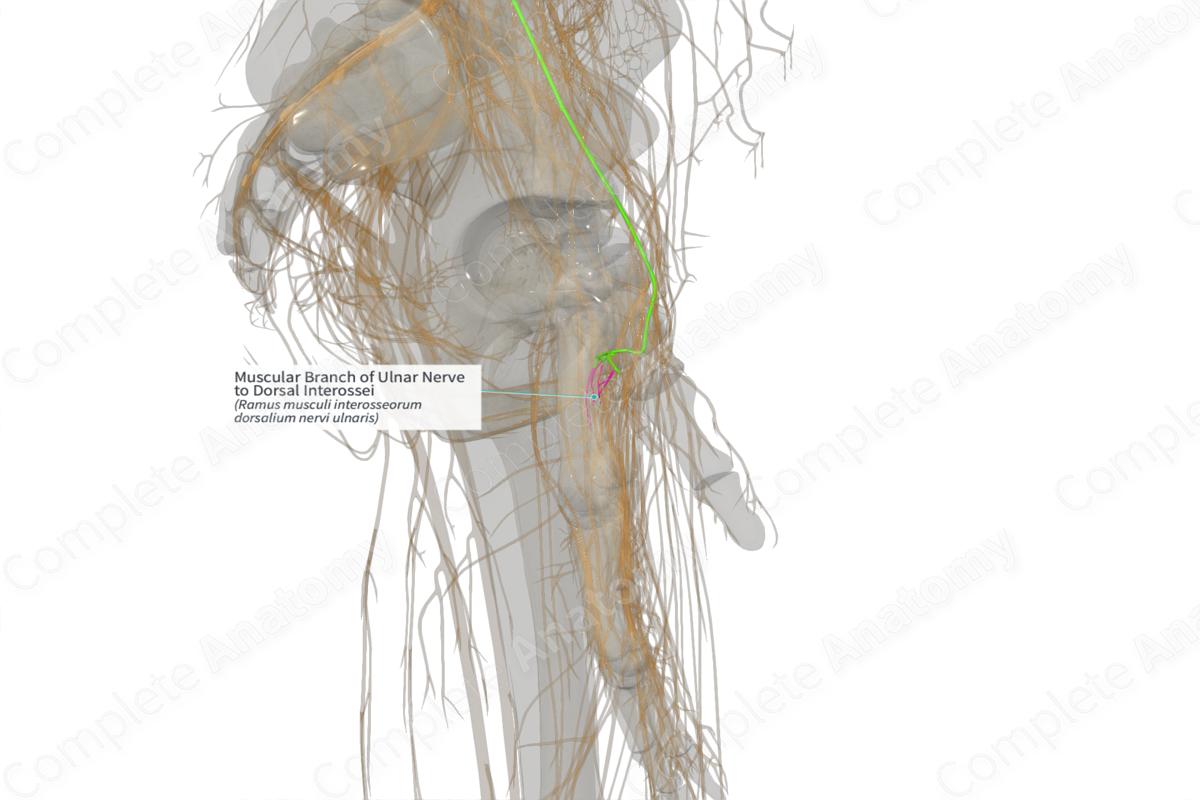
Muscular Branch of Ulnar Nerve to Dorsal Interossei (Left)
Ramus musculi interosseorum dorsalium nervi ulnaris
Read moreQuick Facts
Origin: Deep branch of ulnar nerve (C8, T1).
Course: The deep branch passes backwards through the hypothenar muscles. It turns laterally within the concavity of the deep palmar arch and innervates the medial two lumbricals, palmar and dorsal interossei, flexor pollicis brevis, and adductor pollicis muscles.
Branches: None.
Supply: Dorsal interossei.
Origin
The ulnar nerve crosses the wrist between the tendons of flexor carpi ulnaris and flexor digitorum superficialis muscles. It divides into superficial and deep branches at the distal border of the flexor retinaculum. The muscular branches to the dorsal interosseous muscles come off from the deep branch.
Course
The deep branch of ulnar nerve passes backwards between the abductor and flexor digiti minimi, and then between the opponens digiti minimi and the fifth metacarpal bone, lying on the hook of the hamate. Finally, it turns laterally within the concavity of the deep palmar arch and innervates the medial two lumbricals, palmar and dorsal interossei, flexor pollicis brevis, and adductor pollicis muscles.
Branches
There are no named branches.
Supplied Structures
The muscular branch of ulnar nerve to dorsal interossei provides motor innervation to the four dorsal interosseous muscles in the hand.
Learn more about this topic from other Elsevier products


